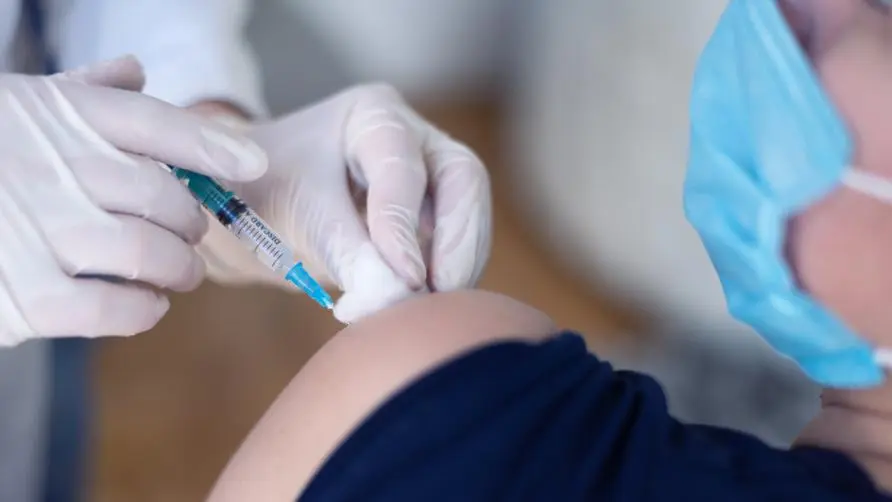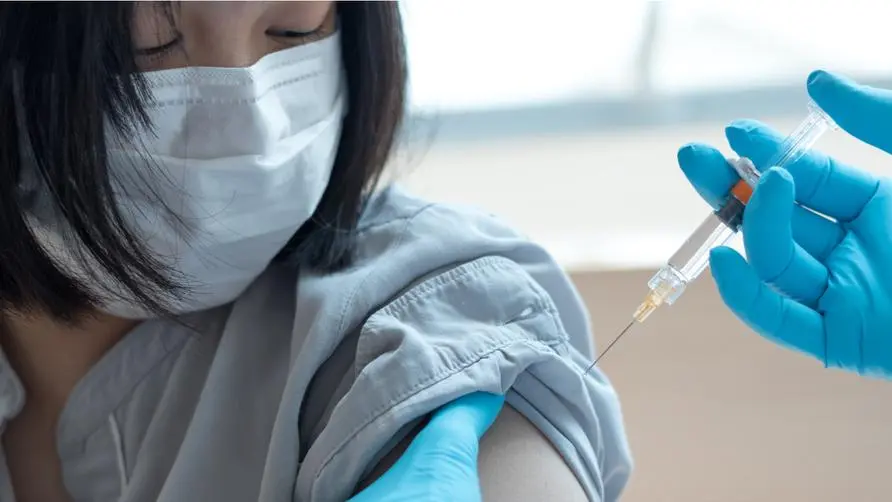Getting the COVID-19 vaccine is not enough! Doctors recommend that adults should take "these vaccines" to increase protection

Most adults believe that they have been vaccinated and have sufficient protection. Inadvertent infection will not be too serious and they can still recover well in good health. Dr. Gu Junyang from the Department of Family Medicine of Yadong Hospital reminds that no age group is immune to the different risks of infection from birth to old age. To prevent the spread and complications of infectious diseases, vaccination is indispensable. , but vaccinations for adults are often ignored. It is recommended that adults should still receive relevant vaccines at the appropriate time to supplement the body’s immunity.
Recommended vaccines for adults
Chickenpox vaccine (Varicella)
Because the symptoms of chickenpox infection become more severe with age, adults who do not have chickenpox antibodies, especially those who have not been vaccinated against chickenpox and have not had chickenpox, should receive 2 doses (at least 4-8 weeks apart).
In addition, chickenpox infection in pregnant women may cause fetal malformation or miscarriage. It is recommended that women of childbearing age be tested for chickenpox antibodies.
Herpes zoster vaccine
Herpes zoster is most common in middle-aged and elderly people over 50 years old. That is, after the chickenpox virus is recovered, a small amount will lie dormant in the ganglia of the human body, and will be reactivated when the body’s immunity is low. The recurrent rash easily invades the nerves. In addition to the painful, unilateral vesicular rash distributed along the dermatomes, common complications include post-herpetic neuralgia. In severe cases, it may also lead to optic neuritis, scleritis, facial nerve paralysis, and hearing loss. damage or even stroke.
Therefore, for those aged 50 and above who have never been vaccinated against herpes zoster (regardless of whether they have a history of chickenpox or herpes zoster), it is recommended to receive one dose of active attenuated herpes zoster vaccine. Immunocompetent people who have been infected with herpes zoster may consider delaying vaccination for 1-3 years.
Hepatitis B vaccine
Hepatitis B is closely related to cirrhosis and liver cancer. For those who have never been vaccinated, do not know the past hepatitis B vaccination history, or are in high-risk groups, it is recommended to test for hepatitis B antibodies first.
Measles-Mumps-Rubella (MMR)
Measles, mumps, and rubella are all transmitted through droplets. The vaccine can prevent complications such as otitis media, pneumonia or encephalitis; testicularitis and ovary inflammation, which affect fertility; early infection of German measles in pregnant women can lead to miscarriage, stillbirth or malformation.
It is recommended that adults, especially women of childbearing age (15-49 years old), can test for MMR antibodies. If the antibodies are negative, please go to a medical institution for re-vaccination.
Tetanus-diphtheria, Td
It is recommended that adults receive an additional dose of Td (Tetanus-diphtheria) every ten years. For adults aged 19-64 who may come into contact with infants and young children under one year old, a dose of TdaP is recommended to prevent the transmission of pertussis virus to infants and young children causing severe respiratory symptoms.
Human papillomavirus vaccine (HPV)
Human papillomavirus (HPV) is related to genital warts, female cervical cancer, and glossopharyngeal cancer, and is an important sexually transmitted infection. Its vaccine is suitable for women and men aged 9-45. When they start having sexual intercourse, the chance of being infected with HPV will increase significantly. The best time to vaccinate is for those who have not had sexual intercourse or have not been infected with HPV. If you have had sexual intercourse, you are also advised to beat yourself up to protect yourself and your partner’s health.
Influenza vaccine
Influenza viruses are highly variable, with different viral strains circulating almost every year. It is recommended that adults (including pregnant women) be vaccinated every year.
Recommended vaccines for high-risk groups
Hepatitis A vaccine
Hepatitis A is transmitted through feces or mouth and causes acute liver inflammation. As long as people do not have protective antibodies against hepatitis A, they can consider vaccination for a total of 2 doses, with an interval of 6-12 months between the 2 doses. The protection can last for more than 20 years.
Pneumococcal Vaccine
Streptococcus pneumoniae is transmitted through droplets and is highly invasive and toxic. In addition to easily causing pneumonia, it can invade the blood and cause severe bacteremia, meningitis, etc. It is recommended that adults in high-risk groups, especially those aged 65 and above, get the vaccine. There are currently two types of vaccines on the market, 13-price and 23-price. Due to their different protection ranges, administration intervals, and duration, the appropriate vaccine can be selected after evaluation by a physician.
Recommended vaccines for international travel
Yellow fever vaccine
Yellow fever is transmitted by insect vectors and is still an endemic disease in some countries in Africa and Latin America. Its typical symptoms include fever, chills, headache, general muscle pain, nausea, and vomiting. Some patients are more likely to be in danger in the short term. In the early stages, bleeding symptoms and even liver and kidney failure may occur.
It is recommended that travelers going to high-risk areas be vaccinated ten days before leaving the country, and one dose for life is enough.
Meningococcal meningitis vaccine
There are currently cases of Neisseria meningitidis infection around the world, and the disease can easily spread in crowded places or activities. The main endemic areas are in the “African Meningococcus Belt” across central Africa south of the Sahara Desert. Travelers to high-risk areas are advised to stay abroad for ten years. Days before vaccination, an additional dose can be given every 5 years. In addition, according to Saudi Arabia’s regulations, pilgrims to Mecca must be vaccinated (valid for three years).
Japanese encephalitis vaccine
Japanese encephalitis is transmitted by insect vectors, and some patients may develop symptoms such as headache, fever, aseptic meningitis or encephalitis. Taiwan currently recommends vaccination for adults who are at risk of infection, including those who live or work near livestock buildings or mosquito breeding grounds, as well as those who are expected to travel to endemic areas (one week before leaving the country). If they have not been vaccinated or the vaccination history is unknown, they are recommended to be vaccinated at their own expense. 1 dose of live attenuated vaccine.
Dr. Gu Junyang from the Department of Family Medicine recommends that adults should first review possible vaccine options based on their personal disease history, vaccine history, and risk factors, and then go to a medical hospital for a comprehensive vaccine evaluation. Although adults have good resistance, they still need Considering the safety of family members living with them, pregnant women need to consider the health of their fetuses. Vaccination is to enhance the protection of themselves and their family members.





